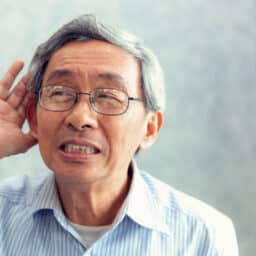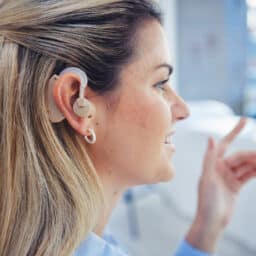What Is Conductive Hearing Loss and How Can You Manage It?

Approximately 60.7 million Americans aged 12 and over have some degree of hearing loss. Hearing loss is a complex condition with multiple types, causes and degrees. For instance, when a patient experiences auditory issues due to inner ear issues, it’s classified as sensorineural hearing loss, the most common form of permanent hearing loss. While less…
What to Know About Charging My Hearing Aids

Hearing aids have made significant strides in technology and convenience, especially regarding their power options. With 28.8 million Americans who could benefit from hearing aids, understanding the differences between devices with rechargeable batteries and those with replaceable batteries is crucial. Here’s a comprehensive guide to help you make an informed decision about the type of…
Tips To Approach Hearing Loss Treatment With Confidence

Hearing loss impacts about 10% of people in the U.S. While this condition is widespread, discovering you have hearing loss can be overwhelming. Whether you noticed the symptoms of hearing loss yourself or have just completed a hearing test, the path toward treating the condition can feel uncertain. Take a look at how hearing loss…
What to Know About BAER Testing

BAER, or Brainstem Auditory Evoked Response, is a diagnostic test used to evaluate the auditory function of the brainstem. This non-invasive procedure offers crucial insights into hearing ability and auditory nerve function, aiding healthcare professionals in diagnosing and managing hearing loss in infants and young children. Let’s delve into how BAER testing is utilized. About…
Tips to Create a Daily Hearing Aid Routine

Beginning the journey of using hearing aids is a blend of anticipation and adjustment. While these devices offer the promise of enhanced sound perception and social connection, adapting to them can require patience and diligence. Surprisingly, statistics show that only 30% of individuals aged 70 and older who require hearing aids have ever utilized them….
Signs of Hearing Loss in Toddlers and Young Children

Hearing loss can have a profound effect on a child’s development of speech, language and social skills. The sooner hearing loss is identified and addressed, the more effectively it can be managed. Prompt recognition and management of hearing loss during the early stages of a child’s life are essential for developing speech and language skills….
Is It Time to Adjust Your Hearing Aids?

Hearing loss isn’t a static condition. It can evolve or worsen over time. That’s why regular adjustments are essential to ensure your devices keep pace with your changing hearing needs. During an adjustment session, often termed a programming appointment, your audiologist will assess your hearing, detect any frequency shifts and fine-tune your devices accordingly. There…
Tips For Dating With Hearing Loss

Exploring the realm of dating presents its own set of challenges, which can be compounded for individuals with hearing loss. In fact, 15% of adults in the United States experience some degree of hearing difficulty, indicating that this is a shared experience for many. The challenge of hearing loss in dating scenarios, especially in locations…
What Are the Stages of Hearing Loss

Hearing loss arises when the inner ear or portions of the inner ear fail to function correctly. The causes are varied, ranging from damage caused by exposure to loud noises or age-related decline. In the U.S., about 15% of the adult population reports experiencing some level of hearing trouble. With an understanding that some hearing…
Winter Care Tips for Your Hearing Aids

Winter brings with it a unique set of challenges for those with hearing loss. If you’re one of the 28.8 million U.S. adults who rely on hearing aids, you know how important it is to keep them functioning. Cold temperatures, snow and moisture can all pose threats to the performance of your devices. Let’s look…
